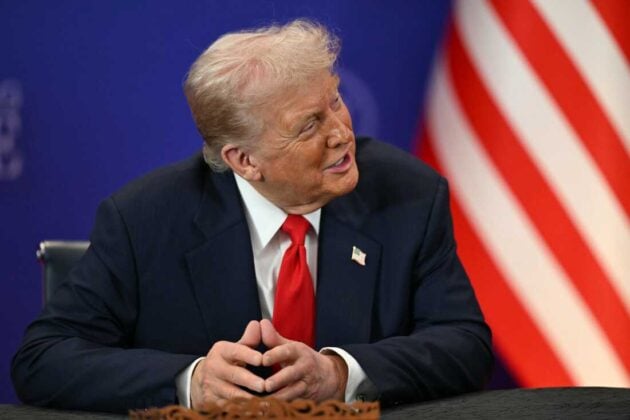The Fulbright Program has long been regarded as one of the United States’ most respected academic exchange initiatives — a symbol of educational diplomacy that has connected scholars across borders for nearly eight decades.
But a recent wave of resignations has brought the program into the national spotlight, raising questions about how political priorities intersect with international education.
All twelve members of the Fulbright Foreign Scholarship Board have stepped down, issuing a public letter expressing deep concerns about recent actions taken by the current administration under former President Donald Trump. Their decision marks one of the most significant board-level protests in the program’s history.
The board, established by Congress, oversees the Fulbright Program’s direction, ensures compliance with U.S. law, and helps maintain its longstanding commitment to academic independence. According to their collective resignation letter, board members felt they could no longer fulfill those responsibilities under new policy directives they viewed as inconsistent with the program’s mission.
A Program Built on Academic Independence
Since the Fulbright-Hays Act was signed into law in 1961, the program has operated on principles intended to transcend political cycles. Its core values include academic freedom, bipartisan oversight, and the belief that international exchange fosters mutual understanding and peace.
In their resignation letter, board members emphasized that they have served under both Democratic and Republican administrations while maintaining adherence to those values. They noted that past administrations, regardless of political affiliation, had respected the program’s statutory independence.
The recent changes, they wrote, marked a departure from that tradition.
Concerns Over Award Decisions and Review Procedures
Central to the board’s resignation is a claim that a significant number of Fulbright awardees for the 2025–2026 academic year were denied their placements after being selected through the program’s established review process. An additional 1,200 foreign recipients, they reported, were placed under a new review procedure the board says it did not authorize.
Board members expressed concern that these actions could undermine trust in the selection process, potentially affecting the program’s credibility abroad and limiting its ability to attract scholars in the future.
They also stated that they raised these issues privately with senior officials multiple times, but their concerns went unanswered.
The Administration’s Position
Officials from the Trump administration, for their part, have highlighted national security concerns as a key justification for increasing oversight of foreign academic participation. Several senior officials have pointed to recent cases involving unauthorized transfer of research materials or potential misuse of academic programs by foreign nationals.
In one widely reported incident, a visiting scholar from China was charged with attempting to bring biological materials into the United States. Federal officials described the case as part of a broader pattern of activity that could place research institutions at risk.
While such cases tend to be isolated within the broader context of international exchange, they have fueled calls from some policymakers for increased scrutiny of visiting scholars and university partnerships.
A Tension Between Security and Academic Exchange
At the heart of the debate is a longstanding challenge: how to safeguard national security without compromising the openness that fuels international research and cultural exchange. Academic leaders have noted that the Fulbright Program, by design, serves as a bridge between cultures — one that thrives on collaboration, transparency, and mutual trust.
The resigning board members argued that the recent measures risk shifting the program away from its foundational mission, framing the changes as both legally questionable and potentially harmful to U.S. interests.
In their letter, they urged Congress and the courts to ensure that the Fulbright Program remains protected from political pressure and able to operate according to the principles that have defined it for generations.
What This Means for Scholars and Institutions
For academics and universities, the mass resignation creates uncertainty about the immediate future of Fulbright decisions and oversight. Scholars who were selected for awards, particularly those affected by the new review procedures, may face delays as the program adjusts to the leadership change.
International partners may also seek clarity about the selection process going forward, since trust in the program’s neutrality is a major factor in its global reputation.
Despite the disruption, officials have emphasized that the Fulbright Program itself remains active. The U.S. Department of State continues to administer the program, and new board members will eventually be appointed as required by law.
A Program With a Long Legacy
For nearly 80 years, the Fulbright Program has represented a national commitment to understanding the world through education, cultural exchange, and shared academic inquiry. Alumni include Nobel laureates, university presidents, scientists, writers, and countless community leaders around the world.
The challenge now lies in navigating a moment of transition while preserving the values that have allowed the program to flourish for decades. The recent resignations highlight just how important those values remain to the people closest to the program’s mission.
As policymakers and academic institutions continue to respond, the conversation will likely remain focused on balancing safety, legality, and the enduring belief that education is one of the strongest tools for global cooperation.
